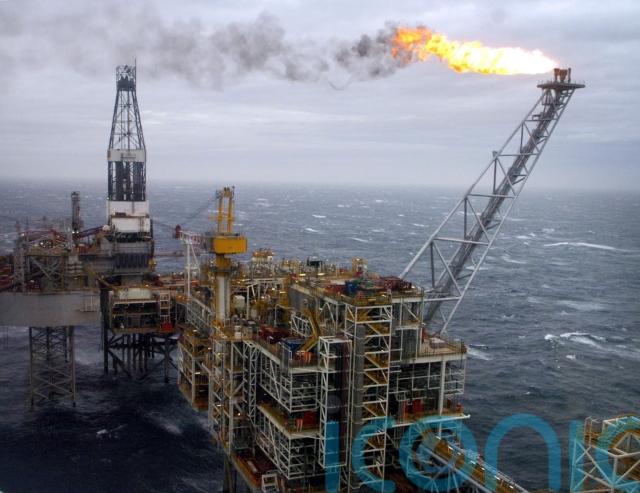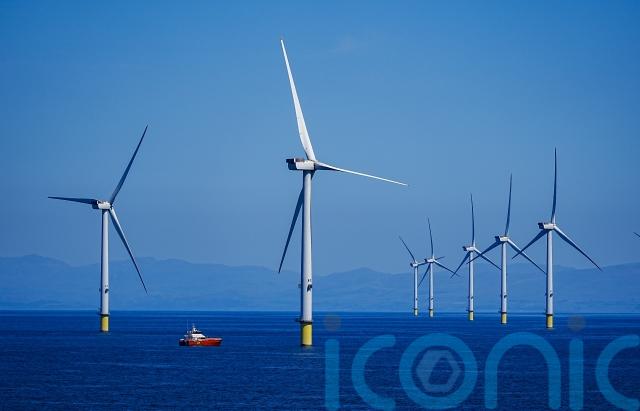
Downing Street has denied reports that Sir Keir Starmer is preparing to miss his Government’s target to decarbonise the UK’s electricity grid by 2030.
The Prime Minister was said to be considering dropping the goal in order to keep energy bills down, which green campaigners called a “complete dereliction of duty on climate action”.
Energy Secretary Ed Miliband is also reportedly willing to commission less of the renewable energy than what experts say is required for the 2030 target to avoid driving bills higher than their current levels.
But in a statement on Thursday, a spokesperson for Number 10 said the reports published on Wednesday night are “completely wrong”.
“The Government and Prime Minister is fully committed to delivering clean power by 2030 because it is how we deliver a system that brings down bills for consumers and protects them against future energy shocks,” they said.

It comes after Sir Tony Blair’s think tank on Thursday said the Government’s focus should be on cheaper not clean power by 2030, although it did not recommend dropping the target outright.
After a row erupted earlier in the year when the former prime minister claimed the current climate approach was not working, and limiting fossil fuels in the short term was “doomed to fail”, the latest intervention from the Tony Blair Institute (TBI) takes care to distance itself from anti-net zero rhetoric.
But this latest salvo in the energy debate is likely to fuel further noise about the direction of current energy policy.
Labour came into Government pledging “clean power by 2030”, with almost all of Britain’s electricity coming from clean sources such as renewables and nuclear by the end of the decade, as part of efforts to secure energy supplies, curb bills and tackle climate change.
But the agenda has faced significant push-back from the Conservatives and Reform UK, who have pledged to ditch “expensive” net zero policies and the Climate Change Act under which targets to cut emissions to zero overall by 2050 are set, and maximise extraction of oil and gas from the North Sea.
It all comes ahead of announcements on the latest offshore wind contract auctions and the Government’s strategy for meeting emissions cuts targets, both expected next week.
How much renewable energy Mr Miliband decides to commission in the coming weeks could be critical to whether the UK hits the 2030 target, with experts saying he needs to buy a record 8GW of new electricity generation at the upcoming auction round.
The TBI paper says walking back the Climate Change Act or net zero targets “would amount to rolling back progress”.
But it warns that achieving clean power must be delivered in a way that is “cost-effective and commands public support”, and that pushing the system too quickly risks driving up costs and undermining confidence.

It calls for a strict cost cap for the next round of auctions for offshore wind contracts and the introduction of zonal pricing with different electricity prices in different parts of the country – which has already been ruled out by the Government.
The paper’s author, TBI’s energy policy adviser Tone Langengen, said: “Launched in the middle of the gas crisis and in a low-interest environment, clean power 2030 was right for its time, but circumstances have changed – the UK now needs more than a decarbonisation plan, it needs a full-spectrum energy strategy built on growth, resilience and abundant clean electricity.”
The Department for Energy Security and Net Zero (DESNZ) said it was delivering many of the policies the TBI calls for, with a spokesperson saying: “This report rightly recognises that clean power is the right choice for this country.
“Our mission is relentlessly focused on delivering lower bills for the British people, to tackle the affordability crisis that has been driven by our dependence on fossil fuel markets.”
In response to the paper, environmental think tanks were quick to point out the role of gas – which sets the price of electricity the majority of the time in the UK – in high energy bills since Russia’s invasion of Ukraine.
Ed Matthew, UK programme director for the independent climate change think tank E3G said: “The only solution to get off the gas price rollercoaster is to get off gas.
“Our research shows that it is possible for the Government to reach its 2030 clean power target whilst reducing electricity bills by more than £200.
“But that requires urgent action by Government to implement cost cutting policies, including moving levies off electricity bills into the Exchequer,” which he urged Chancellor Rachel Reeves to do in the Budget.
Responding to reports that the Government could drop the 2030 target, Areeba Hamid, Greenpeace UK’s co-executive director, said: “These rumours feel like deja vu.
“Starmer folded like a deckchair over the £28 billion green investment pledge last year.
“Another U-turn would be a complete dereliction of duty on climate action from the Prime Minister.”
But Sam Hall, director of the Conservative Environment Network, called for the Government to scrap this “unnecessary and counter-productive target”.
“It risks increasing electricity bills, thereby alienating voters and slowing the uptake of heat pumps and electric cars.”
Subscribe or register today to discover more from DonegalLive.ie
Buy the e-paper of the Donegal Democrat, Donegal People's Press, Donegal Post and Inish Times here for instant access to Donegal's premier news titles.
Keep up with the latest news from Donegal with our daily newsletter featuring the most important stories of the day delivered to your inbox every evening at 5pm.